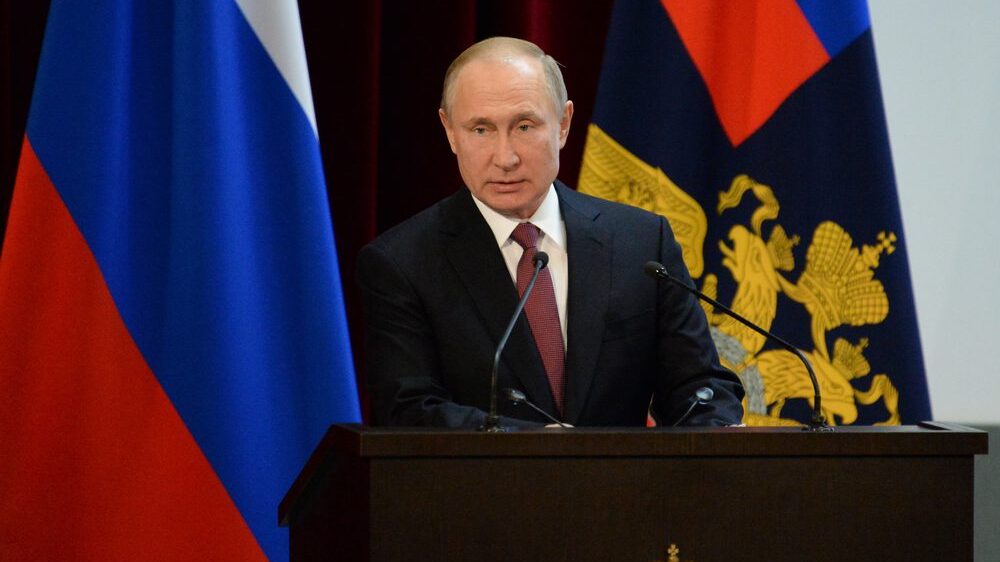
Vladimir Putin.
Photo: Free Wind 2014 / Shutterstock.com
Russia’s representative to the United Nations is able to “sleep well” in the knowledge that his country is not threatening a “nuclear war,” and views warnings to the contrary as nothing more than “propaganda.” The ‘second N-word’ has dominated discussions around the conflict in Ukraine, a fact which is likely to remain so in spite of Vasily Nebenzya’s remarks.
The Moscow official this week told a press conference in New York:
We’re not threatening with nuclear war. All this narrative that Russia is threatening the world with the nukes is a part of propaganda as well.
We’ve been saying longtime consistently, that it is not in our military doctrine, which provides for very few specific cases when the nuclear weapons can be engaged. And that is definitely not the situation which is in our nuclear doctrine.
Whatever the intention of such statements, Western leaders continue to act on the understanding that Russia does pose a nuclear threat. (That is, at least, according to most European and U.S. commentary on the war. UK journalist Peter Hitchens contends, however, that a lack of effort to encourage an end to the conflict through negotiation suggests the West does not take the risk of escalation seriously enough, writing: “The longer we leave it, the greater the risk of Armageddon.”)
David E. Sanger, U.S. national security correspondent, described the nuclear question as the “inescapable paradox of the conflict.” Reporting for The New York Times, he argued this paradox means that
while the United States and its NATO allies are committed to helping Ukraine expel Russia from its territory, the more successful the Ukrainians are, the greater the risk that Russia will break the unwritten taboo against employing nuclear weapons.
The nuclear question is understood to form part of the answer to why the West, much of which has provided Ukraine with huge levels of support since Russia’s invasion (sometimes beyond its own means), is reluctant—at best—to hand Kyiv long-range missiles. Fears were stoked in September last year when Vladimir Putin insisted nuclear talk “is not a bluff.” Media reports argued “we should take him at his word,” adding that the “spectre of nuclear war” had been raised. Putin, however, framed his comments (convincingly or otherwise) as a response to—rather than an initiation of—nuclear threats, criticising “statements by some high-ranking representatives of leading NATO countries on the possibility and admissibility of using weapons of mass destruction against Russia—nuclear weapons.”
The Kremlin leader added:
I want to remind those who allow themselves such statements about Russia that our country also has a variety of weapons of destruction, and in some areas even more modern than those in NATO countries. We will without question use all means at our disposal to protect Russia and our people. This is not a bluff.
Russia and the West have spent months accusing the other of nuclear “blackmail,” but the air appears to have settled at least a little, at least for now. In a report earlier this year, Mr. Sanger, alongside fellow national security reporter Julian E. Barnes, wrote that tensions, which had previously reached a “crescendo,” have “since abated.” They put this down to, among other factors, a “more stable battlefield,” improved Russo-U.S. communications, and China’s warning against the “irresponsible and incendiary” use of nukes.
